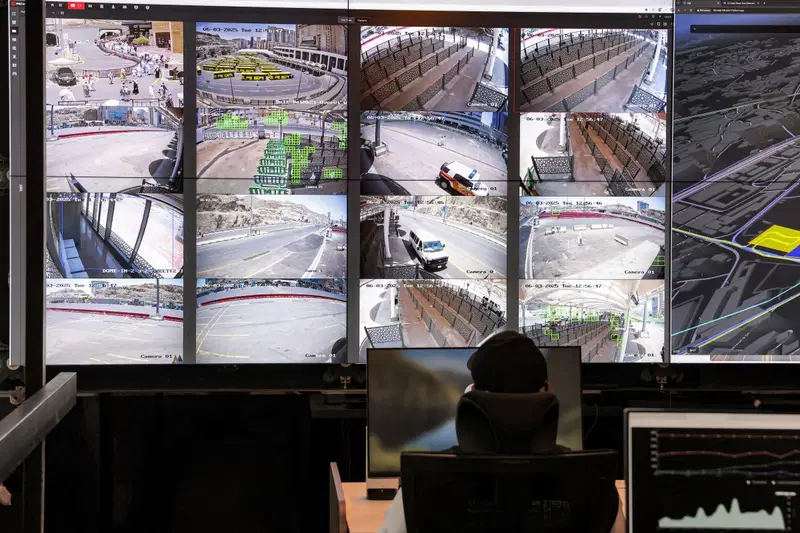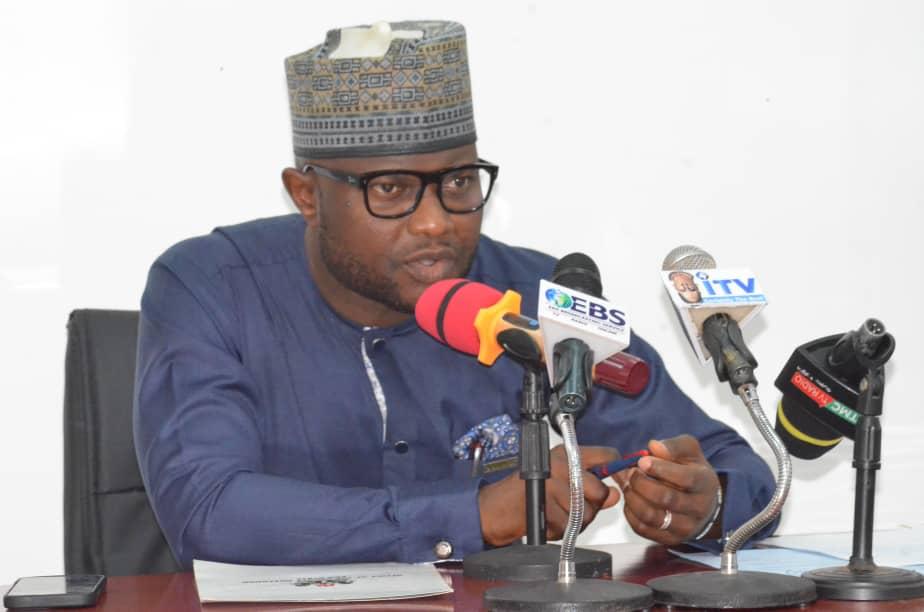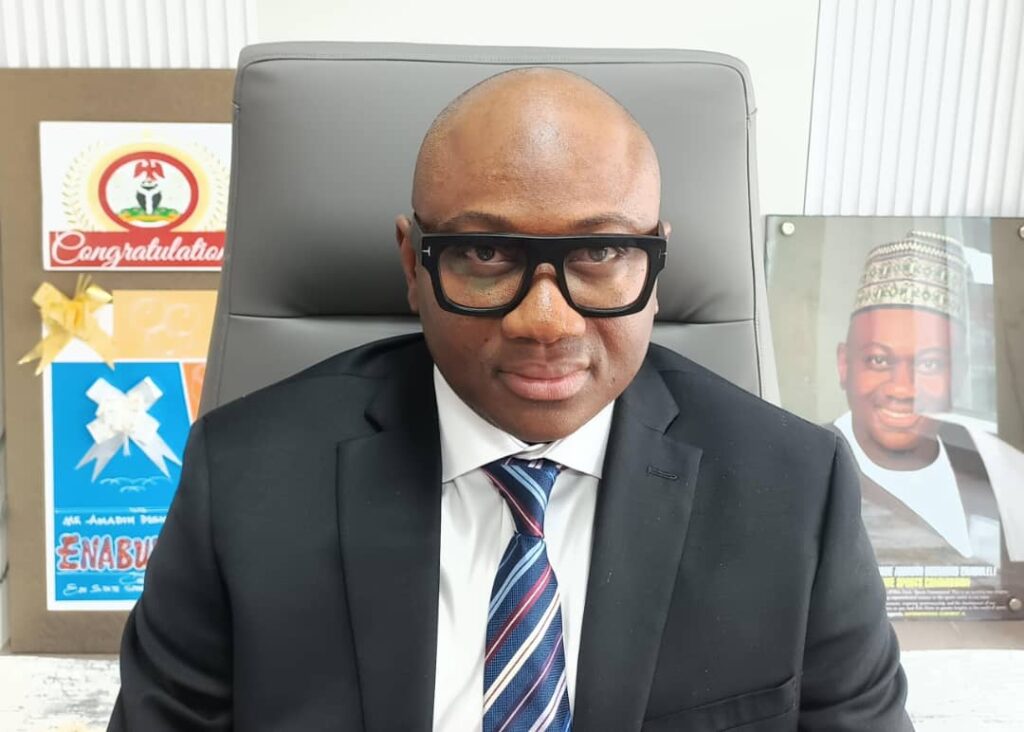News
Saudi Uses AI, Drones And Thousands Of Cameras To Keep Hajj Pilgrims Safe

Working day and night in front of maps, screens and seemingly endless data, Saudi officials have harnessed artificial intelligence to help manage the million-strong sea of pilgrims during the hajj.
The technology has proven pivotal to track the overwhelming amount of footage from more than 15,000 cameras in and around the holy city of Mecca.
The systems are tuned to spot abnormal crowd movements or predict bottlenecks in foot traffic — a potential life-saver at a packed event with a history of deadly stampedes.
Software is also used to help guide more than 20,000 buses deployed to transport pilgrims between holy sites during one of the world’s biggest annual religious gatherings.
It is all part of the tech arsenal that Saudi Arabia is deploying as 1.4 million faithful from across the globe descend on Mecca and its surrounds.
“In our traffic control room, we use specialised cameras that have AI layers to analyse movements, crowded areas” and predict behaviours, said Mohamed Nazier, chief executive officer for the General Transport Centre at the Royal Commission for Mecca.
READ ALSO: US Approves $3.5bn Missile Sale To Saudi Arabia Ahead Of Trump Visit
The centre has a main control room in Mecca filled with screens and maps, where staff use high-tech tools including AI for round-the-clock monitoring.
About a dozen staff members sit in rows before desktop computers with a large display at the front, zooming in on crowd movements around the holy sites.
On hillsides nearby, cameras that resemble little white robots film buildings, roads and pathways along the hajj route, which winds more than 20 kilometres (12 miles) between Mecca and Mount Arafat.
Nazier said the constant monitoring is aimed at averting traffic collisions with pedestrians on crowded routes while also making sure there are buses available to minimise walking time in the desert heat.
– ‘Our eye on the ground’ –
It is a decade since the hajj suffered its worst disaster, a stampede that killed up to 2,300 people during the “stoning of the devil” ritual.
At least 11 killed in stampede at India cricket celebrations
Hundreds also died in stampedes in 2006, 1998 and 1994.
In 1990, 1,426 pilgrims were trampled to death or asphyxiated when a tunnel ventilation system failed.
READ ALSO: Trump Says Putin ‘Playing With Fire’ In New Jab At Russian Leader
With its cutting-edge technology, “the control room is our eye on the ground,” said Mohammed al-Qarni, who oversees the hajj and the year-round umrah pilgrimage at the transport centre.
Artificial intelligence helps to determine “the flow on the (roads to the holy sites), and detects emergency situations even before they occur”, he told AFP, adding that the technology can help assess the number of people in a single place.
Cameras and AI can estimate if a site has reached maximum capacity, allowing authorities to divert the flow of pilgrims, Qarni said.
During the holy month of Ramadan this year, the system spotted when the Grand Mosque had reached full capacity.
“The flow to the Haram (Grand Mosque) was stopped and the process controlled,” he said.
– Thermal imaging –
The use of advanced technology extends beyond logistics, also tracking unregistered pilgrims, who accounted for most of the 1,301 deaths in sweltering conditions last year.
READ ALSO: Saudi Arabia Executes Seven People In One Day
As temperatures soared to 51.8 degrees Celsius (125.2 Fahrenheit) last year, unauthorised worshippers who lack access to air-conditioned tents and buses bore the brunt. Temperatures are forecast to top 40C this week.
The hajj, one of the five pillars of Islam, must be completed by all Muslims with the means at least once.
Yet not everyone is able to secure or afford one of the official permits, which are allocated to countries by quota and awarded to individuals by lottery.
To try to stop anyone sneaking in this year, a fleet of camera-equipped drones is monitoring entrances into Mecca.
“We use artificial intelligence and other tools like drones and thermal imaging cameras,” the director general of public security, Lieutenant General Mohammed bin Abdullah Al-Bassami, told reporters.
Meanwhile, the Saudi Special Forces for Roads Security said it was using “smart thermal imaging” to monitor the perimeter of Mecca and the holy sites.
News
Christmas: Edo Deputy Gov Preaches Unity, Hope

The Deputy Governor of Edo State, Hon. Dennis Idahosa has called on residents of the state to embrace unity, love, and renewed hope as Christians celebrate Christmas.
In a statement by his Chief Press Secretary, Mr Friday Aghedo, Idahosa emphasised that Christmas represents values that unite people, regardless of tribe, religion, or politics, promoting compassion, generosity, and peace.
He described the birth of Jesus Christ as a timeless reminder of the values of peace, sacrifice, and compassion, which he said are critical to societal growth and harmonious coexistence.
He urged Edo people to take advantage of the festive season to strengthen communal ties, extend goodwill to the less privileged, and recommit themselves to the collective development of the state.
READ ALSO:Edo Dep. Gov. Idahosa Inducted, Bestowed With Rotary Premium Award
The deputy governor further said that Christmas underscores the importance of shared humanity and collective responsibility in building a prosperous society.
“Christmas is a season that reminds us of the power of hope and shared humanity.
“As a people, we must continue to stand together, support one another, and work collectively for a more prosperous Edo State,” Idahosa said.
READ ALSO:Okpebholo, Idahosa Bag UNIBEN Distinguished Service, Leadership Awards
He reassured residents of the state of the firm commitment of the Governor Monday Okpebholo-led administration to enthrone good governance, inclusive development, and people-oriented policies aimed at improving the welfare and well-being of all Edo citizens.
Idahosa also appealed to residents to celebrate the season responsibly and sustain peace and harmony before, during, and after the festivities.
He wished Christians a joyous Christmas celebration and prayed for a peaceful, progressive, and prosperous Edo State.
News
YULETIDE: Edo Sports Commission Boss Preaches Unity, Peace

The Executive Chairman of the Edo State Sports Commission, Hon. Amadin Desmond Enabulele, has extended warm Christmas greetings to athletes, coaches, sports administrators, journalists, and the people of Edo State, urging them to uphold the enduring values of love, peace, and unity that define the festive season.
In a statement issued by his Media Officer, Edoko Wilson Edoko, Hon. Enabulele described Christmas as a period of reflection, gratitude, and renewed commitment to collective progress and shared responsibility.
“I sincerely appreciate all stakeholders in the sports sector for their cooperation, resilience, and unwavering support throughout the year. Your contributions have been instrumental to the growth and success of sports in Edo State,” he said.
READ ALSO:Edo SWAN Distances Self From Online Publication Against Enabulele
He further commended Edo athletes for their dedication and discipline, noting that their consistent performances have continued to bring pride and recognition to the state at both national and international levels.
According to him, the Commission remains committed to athletes’ welfare, grassroots sports development, and the creation of opportunities that will enable talents to flourish.
Enabulele also called on residents of the state to celebrate responsibly and show compassion to one another, particularly the less privileged, emphasizing that unity and peaceful coexistence are vital for sustainable development.
READ ALSO:How Enabulele Is Driving Okpebholo’s Agenda In Edo Sports Commission
He reaffirmed the Edo State Sports Commission’s resolve to strengthen collaboration with partners and stakeholders in the coming year, with increased focus on excellence, transparency, and inclusive sports development.
The Sports Commission boss concluded by wishing everyone a joyous Christmas celebration and a prosperous New Year filled with hope, good health, and greater achievements.
News
MOWAA: Okpehbolo Receives Edo Assembly Resolution Indicting Obaseki

Edo State Governor, Monday Okpebholo, received report and resolutions of the Edo State House of Assembly which indicted former Governor Godwin Obaseki on the Museum of West African Art (MOWAA) and the Radisson Hotel projects.
Recall that the Edo Assembly raised a five-man committee to investigate funding and ownership of both projects following a request by Governor Okpebholo.
Okpebholo, who spoke after receiving the report said its findings and recommendations would be fully implemented.
Okpebholo said the Economic and Financial Crimes Commission (EFCC) would be invited to further examine issues raised in the recommendations.
READ ALSO:MOWAA: Why I Will Not Appear Before Edo Assembly Panel — Obaseki
According to him, the Edo State Government has significant stakes in the MOWAA and Radisson Blu hotel having invested ₦3.8bn respectively in both projects.
He said changes in the structure and nomenclature of the MOWAA project made the investigation unavoidable.
Okpebholo said it was unacceptable to suggest Edo State has only 10 per cent stake in the Radisson Blu hotem despite investing over ₦28bn.
“Edo State has spent over ₦3.8 billion on this project, yet some people are saying the state has no stake in it. That is totally unacceptable. I will work with your recommendations and forward them to the relevant authorities to investigate what truly happened. We will also involve the EFCC.
READ ALSO:MOWAA Controversy: Edo Assembly Threatens Arrest Warrant On Obaseki, Others
“Our investment in this project is over ₦28 billion. We must invite the EFCC to step in and determine if this is how businesses are conducted in Nigeria,” he said.
In its recommendations passed by the Assembly, the five-man committee headed by Hon Addeh Isibor, urged the Edo State Government to take possession of both projects.
It asked Governor Okpebholo to contract competent hands to complete renovation of the Hotel and take all steps to put the Hotel to use.
The recommendations urged the Edo State Government to revoke “the fraudulent Certificate of Occupancy to the property issued in the name of Hospitality Investment and Management Company Limited and revert same to the Edo State Government that purchased the property.
READ ALSO:Edo Assembly Charges Contractor Handling Ekekhuan Road To Accelerate Work
“That the Edo State Government initiate legal action and work with relevant Anti-graft Agencies to retrieve both the complete statement of account and the balance of the Seventeen Billion, Five Hundred Million Naira (N17,500,000,000.00) Bond proceeds still in the possession of the Escrow Agents. Meristen Trustees Limited and Emerging Africa Trustees Limited.
“The title to the MOWAA Property having never been revoked, same remains the property of the Central Hospital, Benin City
“That the Edo State Government immediately takes all necessary step to put the property to good use in the best and overriding public interest of the people of Edo State.”
Speaker of the Assembly, Hon. Blessing Agbebaku, said the facts about MOWAA and Radisson Blu Hotel were now clearly documented in resolutions and outcomes.

 News3 days ago
News3 days agoPHOTOS: New Era In Furupagha-Ebijaw As Okpururu 1 Receives Staff Of Office

 News2 days ago
News2 days agoUBTH CMD Marks 120 Days In Office, Expresses Commitment To Providing Conducive Working Environment

 News3 days ago
News3 days agoFG Declares Public Holidays For Christmas, New Year Celebrations

 News3 days ago
News3 days agoOPINION: Gumi And His Terrorists

 Metro5 days ago
Metro5 days agoShe Grabs, Pulls My Manhood Anytime We Fight — Husband

 News2 days ago
News2 days agoFIRS Confirms NIN As Tax ID

 Metro5 days ago
Metro5 days agoWhy I Charged My Husband Money For Sex —Woman

 News5 days ago
News5 days agoMy Wife Dented My Image, Took Our Marital Crises To Radio Stations — Husband

 News3 days ago
News3 days agoOPINION: Christmas And A Motherless Child

 News2 days ago
News2 days agoOPINION: My Man Of The Season


























